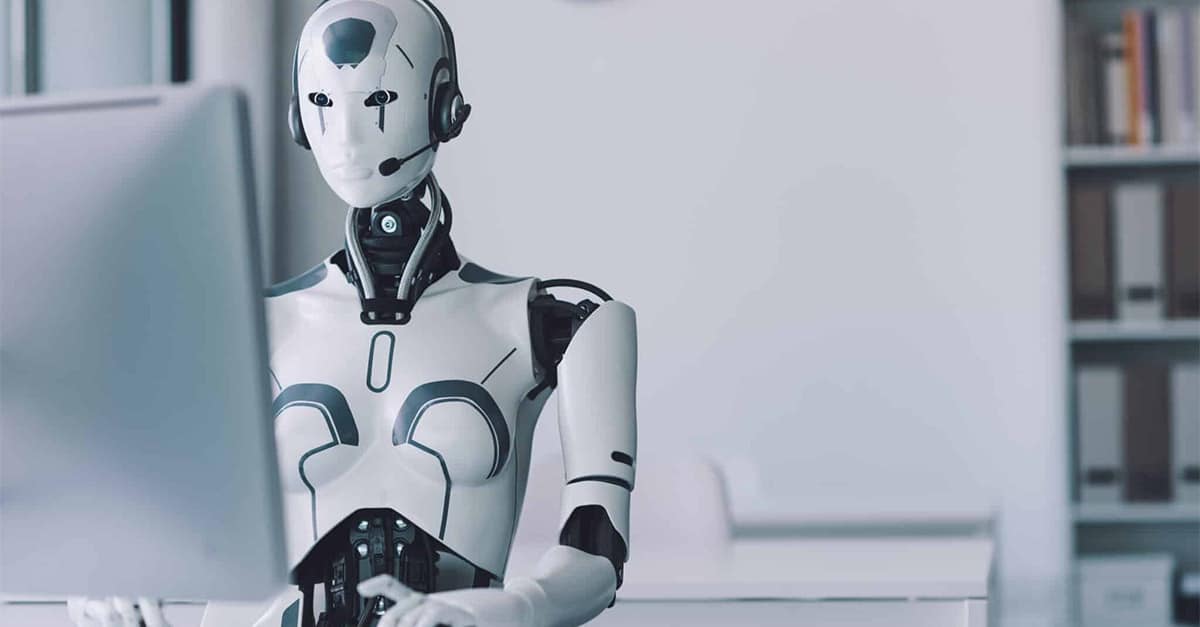02/11/2023
Artificial Intelligence (AI) has quickly become an ever-present and arguably pervasive force. All around the world, it is revolutionizing industries, enhancing productivity, and shaping the future of technology. Alongside its remarkable advancements, a palpable fear of AI has also emerged. This apprehension, often fueled by science fiction narratives, stems from concerns about job displacement, existential risks, ethics, and the unintended consequences of humankind’s insatiable desire to keep pushing for more.
AI WEBINAR VIDEO: WATCH HERE
If you want to learn more about AI, watch our recorded webinar! In the video “A Small Introduction to the Beauty of AI“ we will take you into the world of AI and show you what is already possible today using various examples.

While even AI’s biggest proponents have some degree of skepticism—which, to an extent, is a good thing—are the seemingly common fears that AI will steal all our jobs, alter our collective perception of reality, and eventually lead to the end of humanity as we know it justified, or are these entirely irrational?
Common AI myths and fears
Science fiction and pop culture have catapulted fears of AI into the mainstream. Movies like Terminator and I, Robot paint a picture of villainous machines capable of thinking for themselves and enslaving their human creators.
While the AI in these fictitious representations is a long way off what is possible with today’s technology, there are other myths and fears that, at first glance, might have some merit.
AI will take all our jobs and leave us unemployed
This is by far the most popular AI fear. Many believe that AI will become so advanced and cheap that hiring humans will simply be too expensive, eventually leading to mass unemployment as AI takes over human jobs and executes them with higher speed and accuracy.
There are many reasons why this cannot happen. Chief among them is the fact that many jobs today require cognitive abilities that AI simply doesn’t possess—and likely never will. While relatively low-level jobs such as data entry might be at risk, the rest of the working population should rest easy in the knowledge that, if anything, AI will help them in their roles.
AI fakes will become impossible to differentiate from reality
Chances are you’ve encountered AI fakes, also known as ‘deepfakes’, if you use social media. Whether it’s Donald Trump claiming he’s signed up to Russian YouTube or footage of the late Queen Elizabeth II doing a TikTok dance, deepfakes are difficult to distinguish from reality. While many of these are made purely for entertainment purposes, many believe they could pose a serious threat.
Fabrications and disinformation have been around for centuries. It’s only in recent years that we’ve seen just how rapidly misinformation can spread online and capture entire audiences, and how damaging this can be—the 2021 U.S. Capitol Attack, for example.
AI will become a threat to humans, possibly ending humanity
AI taking over the world has been a mainstay of science fiction for decades. Many stories involve AI somehow infiltrating and taking over some of the world’s most secure systems and using them to overthrow governments and enslave people. Some even depict these programs as taking control of nuclear weapons and causing humanity’s extinction.
While this makes for entertaining viewing, the idea of AI enslaving or otherwise ending humanity is unrealistic for many reasons, not least of all because AI tooling is an example of narrow intelligence that can only perform tasks related to its programmed function. Machines are not sentient; they cannot decide to ‘turn’ on their ‘masters’ and do us harm.
It’s not all doom and gloom
Although some AI fears such as deepfakes do hold some merit, it’s impossible to ignore all the good that the development of artificial intelligence brings with it—and on balance, the good far outweighs the bad.
AI holds particularly immense potential when it comes to saving time through its ability to automate repetitive and time-consuming tasks. In business settings, for example, AI-powered solutions can handle data analysis, report generation, and even customer service inquiries, allowing employees to redirect their efforts toward more strategic and creative endeavors.
AI also offers benefits for the average individual, from AI-powered smart assistants and devices that can streamline everyday tasks such as managing schedules, setting reminders, and ordering groceries. If anything, AI enables us to reclaim more time for pursuing personal interests—for that reason alone, it should be embraced, not feared.
Ensuring ethics in AI
Just as there’s no ignoring how the rise in AI has created many opportunities globally, there’s no ignoring the valid fears and apprehensions that people raise and the potential ethics issues that come with more innovation and development in the AI space.
Ethical concerns stem primarily from the potential that AI systems have to embed biases, in addition to threatening human rights and compounding existing inequalities that pose a threat to marginalized groups.
In response to ethical concerns, groups such as the nonprofit ‘Future of Life Institute’, founded by MIT cosmologist Max Tegmark, Skype co-founder Jaan Tallinn, and DeepMind research scientist Victoria Krakovna, have established rules and guidelines for the ethical development of AI, such as the Asilomar AI Principles. These outline developmental issues, ethics, and guidelines for the development of AI, with the goal of guiding the development of beneficial AI.
How legislators are responding
Legislators are also responding to the growing concerns surrounding AI by introducing new regulatory frameworks that plan to address some of the most pressing issues.
The European Union, for example, proposed the world’s first comprehensive AI law in 2023 as part of its digital strategy. Known simply as the Artificial Intelligence Act, the rules will establish obligations for providers and users depending on the level of risk from artificial intelligence when they come into force, the aim of which is to ensure that AI systems used in the EU are safe, transparent, traceable, and non-discriminatory.
Meanwhile in the United States, while there is no official legislation in the works, the White House has introduced the so-called ‘AI Bill of Rights’—”a guide for a society that protects all people from these threats—and uses technologies in ways that reinforce our highest values.” This incorporates five guiding principles:
- Safe and Effective Systems
- Algorithmic Discrimination Protections
- Data Privacy
- Notice and Explanation
- Human Alternatives, Consideration, and Feedback
As AI continues to infiltrate almost every facet of our lives, we’re only going to see more regulatory developments coming into being that aim to make AI safer and protect the general public from harm.





